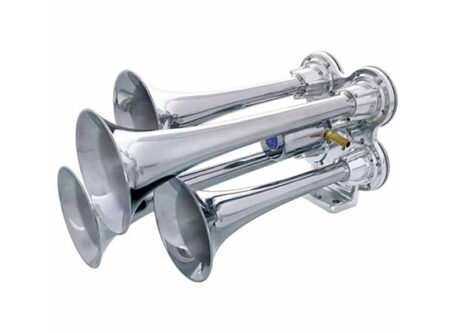Werner owes more than $36M for discriminating against deaf driver
Werner Enterprises is on the hook for more than $36 million for discriminating against a deaf driver.
A jury in a federal court in Omaha, Neb., has awarded Victor Robinson $75,000 in compensatory damages and $36,000,000 in punitive damages. Robinson and the Equal Employment Opportunity Commission filed a lawsuit against Werner alleging violations of the Americans with Disabilities Act.
“Victor Robinson had the courage to step forward and say what happened to him was wrong,” EEOC Chair Charlotte A. Burrows said in a statement. “The jury agreed, and their substantial verdict sends a clear message to employers everywhere that our nation will not tolerate disability discrimination.”
Robinson, who has been deaf since birth, received an exemption from the Federal Motor Carrier Safety Administration from the hearing regulation in March 2015. He received his CDL in February 2016 after successfully completing CDL school at Roadmaster Drivers School in Indianapolis, a Werner-owned truck driving school.
Werner received Robinson’s pre-application for employment in December 2015 for an over-the-road truck driving position. According to the complaint, Werner also had received Robinson’s hearing exemption. In February 2016, Robinson received an email stating that his application had been pre-approved. As a result, he needed to attend the orientation program in Omaha.
Before attending the orientation program, Robinson received a call from Werner’s vice president of safety and compliance, Jaime Maus. During her call with Robinson, Maus asked him multiple questions about his ability to complete training and to drive given his deafness. He answered her questions, explaining he checks his mirrors frequently, his other senses compensate and he can write and gesture with trainers.
At the end of the call, Maus told Robinson that because he could not hear, he would not be hired by Werner.
Robinson told her he believed that was discrimination. Multiple attempts to contact Werner about the decision were unsuccessful.
Subsequently, Robinson filed a charge of discrimination with the EEOC. It attempted to reach a pre-litigation settlement with Werner through its conciliation process, but without success. As a result, the EEOC filed a complaint in a Nebraska federal court.
After deliberating for less than two hours following a four-day trial, a jury found that Werner failed to hire and failed to accommodate Robinson. Maus testified at trial that Werner continues to deny employment opportunities to new drivers who are deaf.
“Werner’s refusal to acknowledge Mr. Robinson’s abilities hurt not only him, but the entire deaf community,” EEOC’s trial team said in a statement. “As this verdict demonstrates, companies like Werner that deny reasonable accommodations to drivers with disabilities do so at their peril.”
Robinson has since been hired by multiple commercial truck driving companies and successfully worked as a commercial truck driver.
The EEOC advances opportunity in the workplace by enforcing federal laws prohibiting employment discrimination. More information about disability discrimination is available at https://www.eeoc.gov/disability-discrimination. LL
Related stories:









